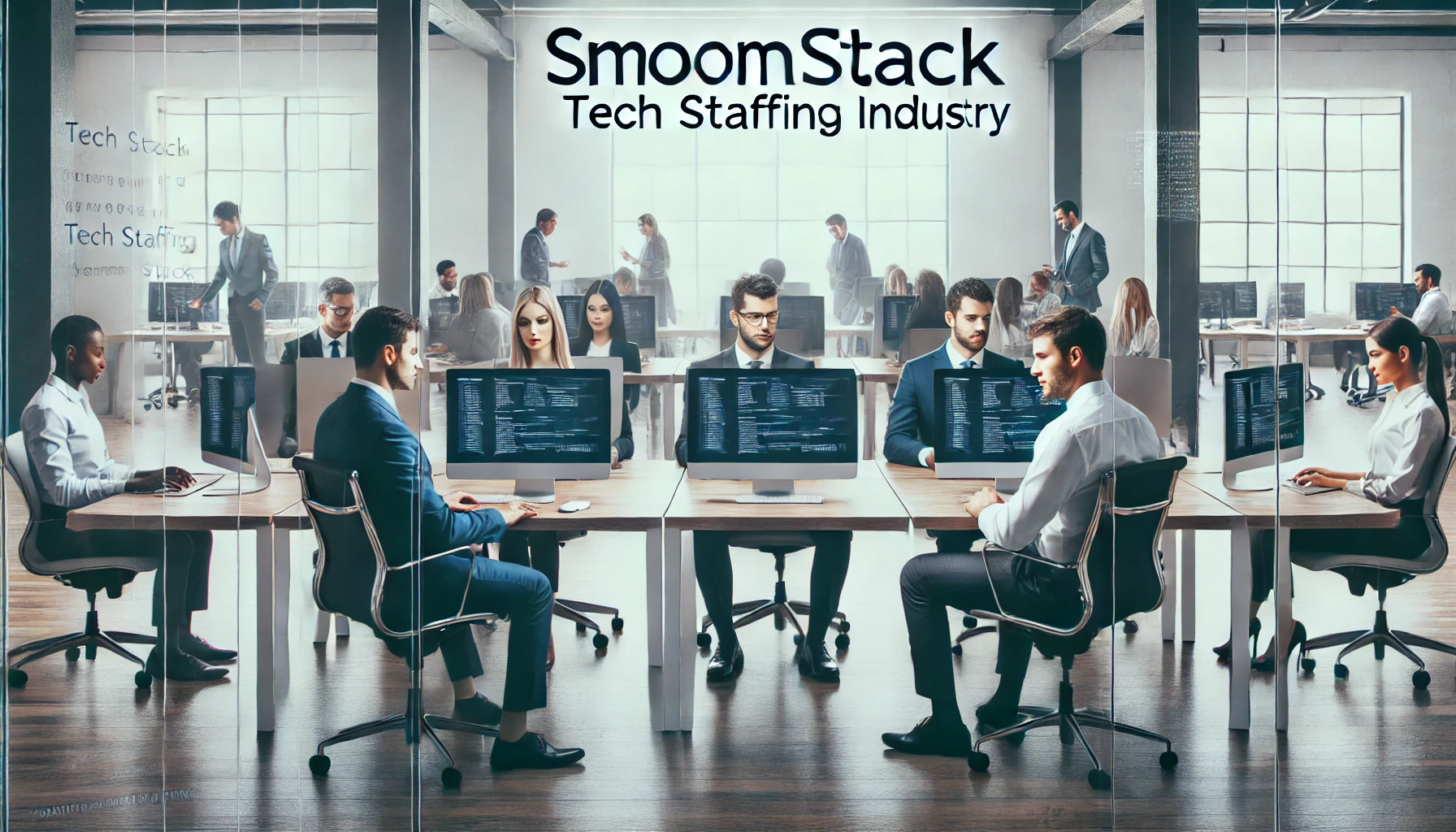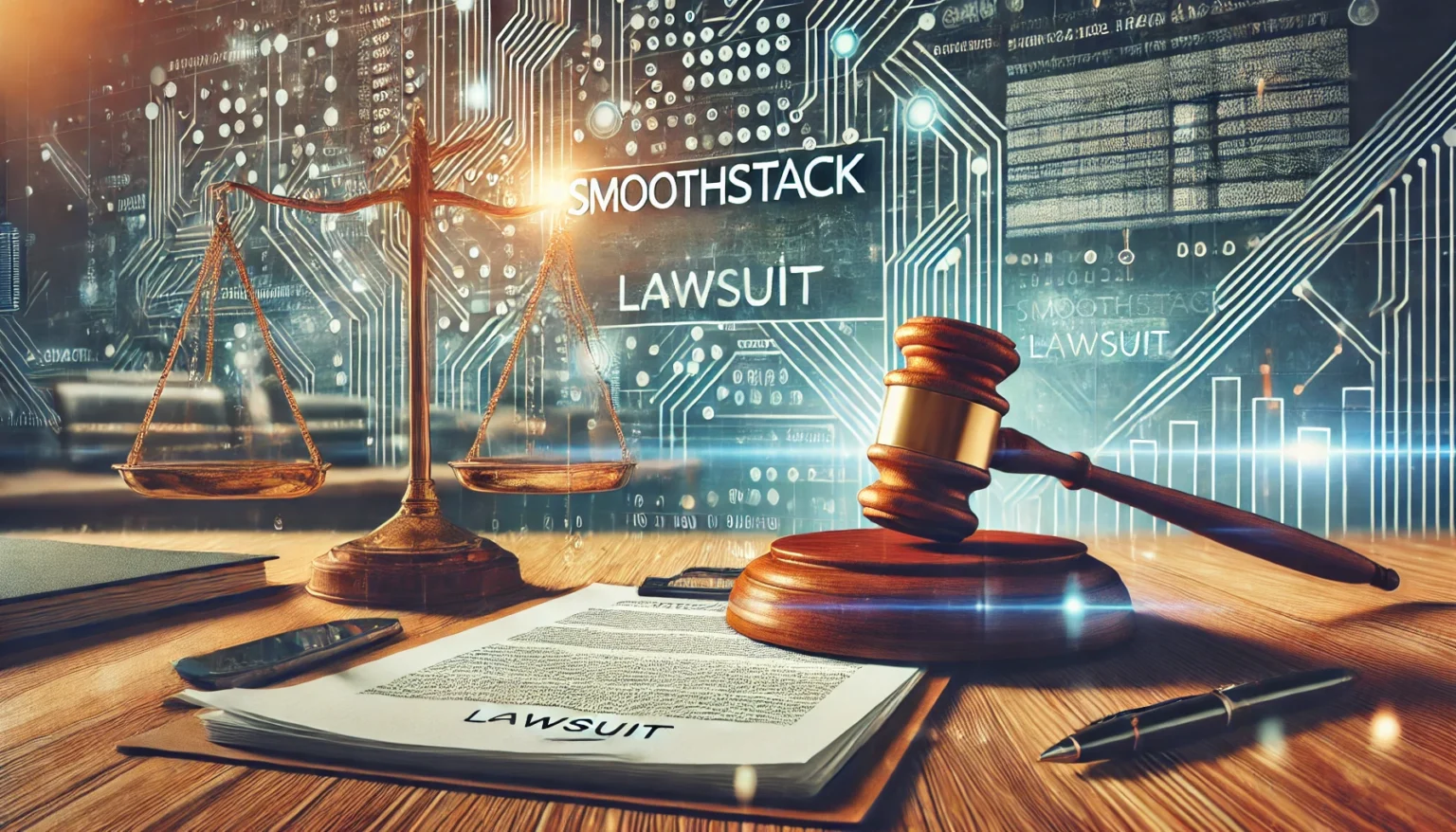Smoothstack Lawsuit is a Virginia-based company specializing in IT staffing and training. The company gained attention by offering tech training programs aimed at helping new graduates and individuals making career transitions. However, recent legal challenges have put the company in the spotlight, with multiple lawsuits alleging unfair labor practices, including coercive contract terms and violations of employee rights. These lawsuits highlight critical issues regarding transparency and fairness in the staffing industry, especially concerning training agreements and worker compensation.
Smoothstack Lawsuit: Allegations and Implications
The Smoothstack lawsuit has brought significant attention to the company’s employment practices, particularly in the tech staffing industry. Allegations center around wage violations and the use of restrictive agreements, such as Training Repayment Agreement Provisions (TRAPs) and non-compete clauses. These agreements required employees to complete around two years of work or face penalties of up to $30,000 for leaving early.
Former employees claim they were misled about these terms during recruitment and were paid below minimum wage during their training period. This led to a class-action lawsuit and legal action by the U.S. Department of Labor, accusing Smoothstack of violating labor laws.
The case has highlighted concerns about fairness and transparency in employment agreements, raising broader questions about how companies should balance training investments with employee rights. The outcome of this lawsuit could set a precedent for labor protections in the tech industry, influencing how contracts and training programs are handled in the future.
Key Allegations Against Smoothstack
Smoothstack is facing serious accusations related to its employment practices, particularly concerning its training programs and the contracts it requires employees to sign. These allegations center around three main issues: wage violations, restrictive agreements, and deceptive recruitment tactics.
Violation of the Fair Labor Standards Act (FLSA)
The U.S. Department of Labor (DOL) has filed a lawsuit accusing Smoothstack of violating the Fair Labor Standards Act, which mandates that workers receive at least the minimum wage for their labor. Specifically, the lawsuit claims that the company paid employees below the federal minimum wage during mandatory training periods. This practice is illegal under federal law and is a major point of contention in the case.
Training Repayment Agreement Provisions (TRAPs)
One of the most contentious elements of Smoothstack’s business model is its use of Training Repayment Agreement Provisions, or TRAPs. Employees who undergo the company’s training program are required to sign agreements that obligate them to work for the company for a set number of hours—often around 4,000 hours, or approximately two years—after completing the program. If they leave the company before fulfilling this commitment, they are required to pay hefty financial penalties, which could amount to as much as $30,000. Many former employees argue that this traps them financially, making it nearly impossible to leave the company even if they are dissatisfied with their job or want to pursue other opportunities.
Misleading Recruitment Practices
Another major issue raised by former employees is that they were misled during the hiring process. Many claim they were not properly informed about the long-term commitments and financial penalties tied to the TRAPs. Employees often assert that they didn’t fully understand the terms of the agreement when they signed, leading to confusion and frustration once they realized the full scope of the contract’s demands.
Class-Action Lawsuit
In addition to the government’s lawsuit, a class-action lawsuit has been filed by a group of former Smoothstack employees. This lawsuit alleges that the company engaged in wage theft by failing to pay employees fairly during the training period. Workers in the training program were reportedly paid less than minimum wage, which, if proven true, would constitute a violation of labor laws. The class-action suit also raises concerns about the fairness of non-compete clauses that Smoothstack allegedly used, which could prevent employees from seeking jobs at competing companies, even after they left Smoothstack.
Legal Actions
The legal challenges against Smoothstack include two primary lawsuits:
U.S. Department of Labor Lawsuit
Filed by the U.S. Department of Labor (DOL) in 2023, this lawsuit claims that Smoothstack violated the Fair Labor Standards Act. The focus of the DOL’s case is on the company’s practice of paying workers below minimum wage during training, as well as the abusive contract terms that forced workers to remain with the company for extended periods under threat of significant financial penalties. The DOL’s suit seeks to recover unpaid wages for affected workers and impose penalties on the company for its alleged violations.
Class-Action Lawsuit
The class-action lawsuit filed by former employees in April 2023 focuses on a broader set of complaints, including wage theft, unfair contract terms, and deceptive recruitment practices. This lawsuit aims to represent a larger group of workers who were impacted by Smoothstack’s policies. The plaintiffs argue that the company’s contracts were not transparent and that many employees were unaware of the financial penalties tied to their training commitments. The class-action lawsuit seeks compensation for affected workers and demands changes to the company’s practices.
Key Terms and Issues in the Lawsuit
To understand the full scope of the lawsuits against Smoothstack, it is important to examine some of the key terms and practices at the heart of the legal battles:
Training Repayment Agreement Provisions (TRAPs)
TRAPs are agreements in which employees must commit to working for a certain number of years or hours after completing training. The idea behind these agreements is to ensure that the company recoups the financial investment it makes in training new workers. However, critics argue that these contracts are overly restrictive and unfair, especially when employees are required to repay thousands of dollars if they choose to leave the company early. The financial penalties associated with TRAPs have led to accusations that Smoothstack is essentially trapping workers in a cycle of debt.
Restrictive Non-Compete Clauses
Non-compete clauses are legal provisions that prevent employees from working for competitors for a specified period after leaving a company. While non-compete clauses are common in many industries, they have become controversial when they are seen as overly broad or restrictive. Former Smoothstack employees have argued that the company’s non-compete clauses were too restrictive, limiting their ability to find work in the tech industry after leaving the company.
Impact on Employees
The lawsuits have highlighted the significant negative impact that Smoothstack’s practices have had on its employees. These practices have affected both their financial well-being and their career prospects.
Financial Burden
Many employees have reported that the financial penalties for leaving the company early—up to $30,000—placed a heavy burden on them. In some cases, employees were forced to remain in jobs that they were unhappy with simply because they could not afford to pay off the penalties or because they feared legal action. This financial trap has left many workers feeling helpless and stuck in a cycle of debt.
Job Mobility Issues
Smoothstack’s non-compete clauses have further restricted employees’ ability to move on to better job opportunities. Even if workers wanted to leave the company, they were often unable to find new work in the same industry, particularly in tech, because they were bound by restrictive non-compete clauses. This stifled their professional growth and forced them to stay in a job that may not have been the best fit for their skills or career goals.
Emotional and Professional Impact
The emotional toll of working under these restrictive agreements has been significant. Employees have reported feelings of stress, frustration, and a lack of control over their careers. Many workers felt trapped, unable to pursue better opportunities or make decisions that would benefit their professional growth. This has led to burnout and dissatisfaction among those who felt the company’s practices were exploitative.
Broader Implications for the Tech Industry
The issues raised in the Smoothstack lawsuit have far-reaching implications for the tech staffing industry as a whole. Smoothstack is not the only company that uses training repayment agreements, and the practice has raised concerns about fairness and employee rights.
Use of TRAPs in the Industry
Smoothstack’s use of TRAPs is part of a broader trend in the tech industry where companies attempt to recover the costs of training new employees. While these agreements may make sense from a business standpoint, they have been criticized for creating an imbalance of power, where employees are forced to stay with a company they might not want to work for just to avoid incurring huge financial penalties. If the lawsuits are successful, this could lead to greater scrutiny of TRAPs in the tech industry, prompting other companies to reconsider their use of such agreements.
Legal Precedent
The outcome of the Smoothstack lawsuit could set an important legal precedent for the tech staffing industry. If the courts find that Smoothstack’s practices were illegal, it could lead to new regulations that protect employees from overly restrictive training agreements and non-compete clauses. This could lead to a shift in how staffing companies structure their employment contracts and training programs.
Smoothstack’s Defense and Response
Smoothstack has defended its practices by arguing that the training programs and the associated agreements are necessary to ensure that the company can recover the significant investment it makes in training its employees. The company claims that the contracts are standard and were communicated clearly to employees. However, many former workers disagree, stating that they were not fully informed of the potential financial penalties and restrictive clauses when they signed their contracts. Smoothstack has yet to comment extensively on the ongoing lawsuits, but the company may seek to settle the cases or mount a defense based on the validity of its contracts.
Current Status of the Lawsuits
As of now, both the Department of Labor’s lawsuit and the class-action lawsuit are ongoing. The cases could take several months or even years to resolve, depending on the complexity of the legal issues and the amount of evidence presented. If the lawsuits are successful, Smoothstack may be forced to pay substantial fines and compensation to affected employees, and the company could be required to change its business practices. Alternatively, if the company prevails, it may continue its current business model.
Lessons and Takeaways
There are several key lessons that can be drawn from the Smoothstack lawsuit:
- For Employees: It’s crucial to thoroughly review any employment contract before signing it. Understanding the terms, including any training repayment obligations or non-compete clauses, can help employees avoid being trapped in unfair agreements. Workers should also be aware of their rights under labor laws and seek legal advice if they feel their employer is acting unfairly.
- For Employers: Employers must balance their need to protect business interests with ethical treatment of employees. Training programs are valuable, but they should not come at the expense of workers’ rights or well-being. Transparent communication and fair contract terms are essential for maintaining a positive employer-employee relationship.
- For Policymakers: The case highlights the need for stronger protections for workers in industries that rely heavily on training programs. Policymakers may need to enact laws that limit the use of coercive employment contracts and ensure that workers are fairly compensated for their labor.
Conclusion
The Smoothstack Lawsuit shine a light on important issues within the staffing and tech industries, particularly concerning labor rights and transparency in employment contracts. Whether the company is found liable for the accusations or not, the case serves as a reminder of the need for fair treatment of workers. It also raises broader questions about the fairness of training agreements and non-compete clauses in the modern workforce. The outcome of these lawsuits could have significant consequences for both Smoothstack and the tech staffing industry as a whole.
FAQs
What is Smoothstack accused of?
Smoothstack is accused of violating labor laws, underpaying employees during training, and using coercive contracts with high financial penalties.
What are TRAPs, and why are they controversial?
Training Repayment Agreement Provisions (TRAPs) require employees to pay hefty fees if they leave early, which critics say creates financial “debt bondage.”
Who filed lawsuits against Smoothstack?
The U.S. Department of Labor and a group of former employees filed lawsuits citing wage theft and unfair contract practices.
How does Smoothstack’s non-compete clause affect employees?
Employees claim the clauses unfairly limit their ability to work for competitors, hindering their career growth and job mobility.
What is the potential outcome of the lawsuits?
Smoothstack could face fines, pay compensation, and may need to change its employment practices if found liable.
Article Recommendations
Wingate Wilderness Lawsuit: Legal, Social, and Ecological Dimensions Explored
Wordscapes Lawsuit: Lessons for Developers on Copyright Compliance and Licensing
Kerrigan Somerville Lawyer Yoga: Practical Strategies for Integrating Wellness Into a Legal Career
Chula Vista Mesothelioma Lawyer Vimeo: Discover Your Legal Options Through Online Resources















